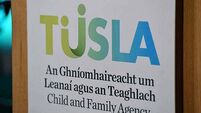Dublin Bus driver who refused drug test loses unfair dismissal case

Seán McCárthaigh
A Dublin Bus driver who was fired after refusing to allow an oral swab to be taken from his mouth as part of a random alcohol and drug test has lost a case for unfair dismissal against the company.
Philip McMahon – a driver with Dublin Bus for 28 years – was dismissed for gross misconduct after he refused to take the drugs test at the Summerhill depot on July 1st, 2024.
Mr McMahon claimed the company had unfairly dismissed him after he had refused to submit to an unagreed DNA oral swab by a private company, Randox.
The driver, who sought to be reinstated to his former role, said Dublin Bus had violated his fundamental rights by suspending him and then terminating his employment, where he had worked since 1996.
He also argued that Dublin Bus had falsely accused him of refusing to submit for intoxicant testing when he had no issue with undergoing testing under agreed procedures.
Mr McMahon told the WRC that he had begun another job after six months as a long-distance coach driver and had told his new employer that he would comply with any breathalyser test conducted by gardaí but would not submit to a workplace DNA test by a private company.
Dublin Bus, which was represented by the employers’ group, IBEC, rejected the claim that Mr McMahon had been unfairly dismissed.
WRC adjudication officer, Penelope McGrath, observed that Mr McMahon had been a solid, dependable employee with a largely uneventful employment relationship before the issue that led to his dismissal.
Ms McGrath also noted that the driver found lockdowns during the Covid-19 pandemic difficult.
As someone who was not comfortable with the vaccination process, Ms McGrath said Mr McMahon had felt that he bore the brunt of societal judgment in that period.
The WRC also acknowledged that there had been long and arduous negotiations between Dublin Bus and trade unions to get drug and alcohol testing integrated into the workplace.
However, Ms McGrath said there was no doubt that the rationale for such testing was “beyond question.”
The WRC heard that Dublin Bus had got a private company, Randox, to conduct random drug and alcohol testing after the Covid-19 pandemic, as tests could deliver results in real time.
Ms McGrath said the complainant has simply refused to engage with the process when he was selected for random testing.
The WRC said he “seemed to think that the policy, which has been published and in place since 2022, did not apply to him”.
It noted he claimed he was only ever prepared to give samples of breath, saliva, blood and urine to the company’s chief medical officer.
Ms McGrath said it was a stance from which Mr McMahon had never deviated.
She accepted that Dublin Bus had no reason to believe the driver was under the influence of drugs or alcohol on the day.
“Had the complainant chosen to submit to the test, no more would have been said about it,” Ms McGrath said.
The WRC official said she fully accepted that Dublin Bus was bound to carry out “a full-throated investigation” into Mr McMahon’s actions.
She said it was also clear that the company had given the driver “every opportunity to mend his hand.”
Dismissing the claim of unfair dismissal, Ms McGrath said she could not understand what nefarious purpose Mr McMahon thought that his swab could be used for.
“He was quite simply adamant that his DNA would not be extracted from him under any circumstances,” she added.
Ms McGrath said the driver could not see that it was impossible to allow him to be singled out for some sort of special or bespoke arrangement for testing.
She said he was unhappy that workplace policies and practices had moved on from 2016, with Dublin Bus having devised “a modern, speedy arrangement” with a third-party for testing.
While Mr McMahon had asked for his constitutional right to bodily integrity to be recognised, Ms McGrath said it was well-established legally that some rights trump others depending on the context.
She concluded: “I am satisfied that the overwhelming need to keep the public (passengers, pedestrians and cyclists) safe, outweighs the complainant’s sense of injustice that anyone would place a Q-Tip in his mouth to extract a sample.”




